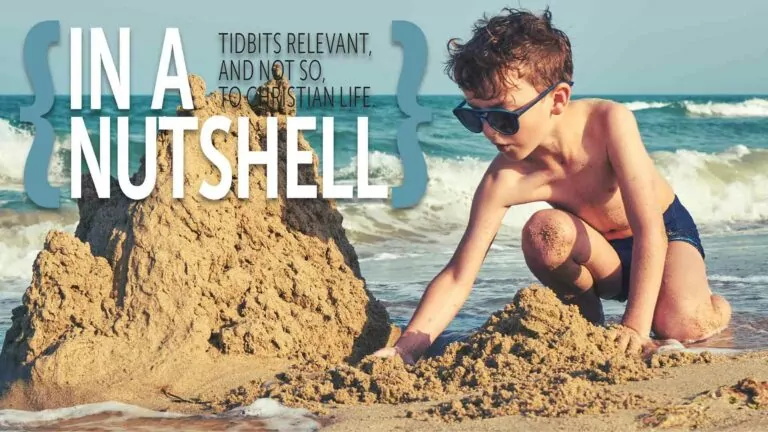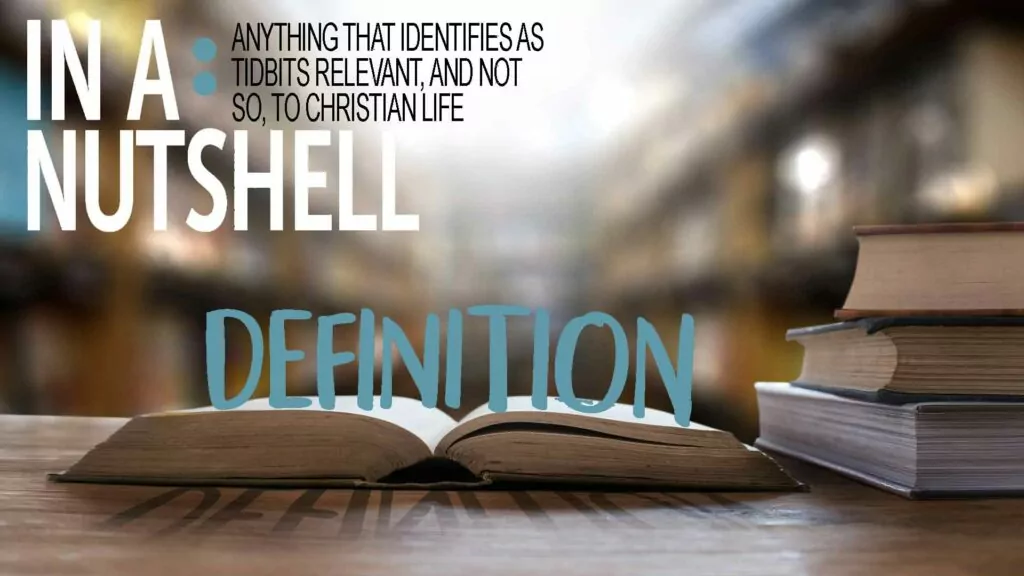Benefit of boredom
There’s a certain sort of belonging that comes out of boredom. One of my formative young experiences was spending four years in the Air Cadets, which I didn’t really have any interest in joining, but a friend invited me and I had nothing better to do. Collective boredom is even better – a great family memory is the enormous sandcastles we’ve built, again, not because of anyone in particular wanting to, but just because there’s only so long you can splash in the waves at the beach. As Ted Kluck wrote in his March 1 WORLD magazine column “An argument for being bored together,” boredom can be magical. He’s reviewing a movie, set in 1971, that he loved and I never saw because of its 35 f-bombs, so I’m not pitching the film. But I am also remembering the merits of boredom.
“The Holdovers …is actually about the magic of being bored with other people, and the creativity and connection that comes as a result. You end up exploring campus buildings. You end up watching television together. You end up breaking bread together. Somebody gets hurt, and then cared for by the group. You hatch outlandish schemes together, and then carry them out. ….I daresay nobody will ever want to watch a movie about college (or boarding school) in 2024. What is there to be romantic about? ‘We had a really nice class session on Microsoft Teams’? No thanks.
“In a modern context, of course, we don’t have much of an opportunity to be bored together, in that we can carry our televisions, our stereos, our classrooms, and all of our conversations with us on our phones. We can curate and self-promote and move-make and side-hustle – all while standing in line at the supermarket. We never have to be bored.
“As a result, we are probably very productive. But we are also – if anecdotal evidence as well as everything written in the past decade is to be believed – very lonely. Perhaps we need more unmediated time together, because relating to one another takes time.
3 Me jokes
Me: I am soooo hungry!
Horse (nervously): How hungry are you?
Genie: You have 3 wishes.
Me: I’m not doing this. I know that whatever I wish for is just going to come back and bite me in some way.
Genie: It won’t. If it does, I promise I’ll give you infinite wishes.
Me: Okay, then I wish for a boomerang with teeth.
Genie: Well played sir, well played …
Doctor: “It turns out, you have acute appendicitis.”
Me (blushing): “Compared to who?”
What’s wrong with the world?
- “In one sense, and that the eternal sense, the thing is plain. The answer to the question, ‘What is Wrong?’ is, or should be, ‘I am wrong.’ Until a man can give that answer his idealism is only a hobby.” – G.K. Chesterton (Aug 16, 1905 in a letter to the Daily News)
- “It’s me. I’m the problem.” – Taylor Swift
- “We should not ask, ‘What is wrong with the world? for that diagnosis has already been given. Rather, we should ask, ‘What happened to the salt and light?’” – probably John R. Stott
Baby whale’s outboard motor is delivered first
Could whales have come about via a step-by-step evolutionary process? Or does their make-up evidence a Brilliant Designer, Who created them just so, from the get-go? Geoffrey Simmons weighs in:
“No one knows how blow holes came about, certainly not by small successive steps, or how the internal lungs became connected up to these holes in a way that prevents drowning. Or, how a massive communication center, found in their heads, came about. Or, how the ability to depressurize body segments during deep dives evolved. Calves are born tail first (they cannot go head first in case the process is too slow) and these newborns must rise to the surface immediately for air or else they will drown. The ability to swim must be present from the beginning. Trial and error would never have worked.”
Opportunity to honor God’s Name in Christian films
I often get sent a “screener” link for upcoming Christian films. It’s a chance for me to watch the film online before it comes out in theaters so I can let RP’s readership know about a good one that’s coming to theaters soon.
But more often than not, even in these Christian films, someone will stub a toe and let loose with an abuse of God’s Name. Very often it happens just once, but even so in film after Christian film, there it is: God’s Holy Name treated as an expletive. You know what you’ll almost never find in a Christian film? Actual expletives. Because Christians won’t stand for that.
When it happened again with the latest screener, I sent the promoter this note:
Thanks for the follow up. I did get the screener link. It looked intriguing but pretty early on someone took God’s Name in vain and that’s our one big no no, so it isn’t for us.
I know that’s an unusual position, but it’s based on the holiness of God’s Name, and the fact that taking it in vain is completely unneeded. Christian studios manage to never use the F-word, so this isn’t a matter of realism. It’s that the F-word is treated with more “reverence” than God’s own Name.
RP reviews movies that have violence, or some degrees of sexuality, or which delve into all sorts of dark topics (we reviewed Sound of Freedom, for example) but not movies that take God’s Name in vain. And, that one stand eliminates about 99% of movies, including the vast majority of Christian films too, which only underscores that need for us all to make the holiness of God’s Name more of an issue. Whereas folks might go to a movie for the sex or violence, no one goes to hear God’s Name taken in vain, so it has no upside for the producer. So why does it happen? Because Christians have treated it as so unimportant that there’s also no downside for the producer to do it.
I got a very polite reply, and she promised to send it on to the film’s producers. There’s a real opportunity for us to effect a change here, if we’re willing to track down the production companies and send them a polite note. It might be as simple as googling the movie, and seeing if it has a website. If not, the production company probably will, and because these are mostly smaller companies, some will still have contact option. These are Christian filmmakers, so this isn’t due to any hatred of God; it’s just ignorance. Even a few notes making the same point could go a long way, because they’ll want to listen.
Tradition, not simply for tradition’s sake
Tradition is often the received wisdom of the previous generations, and shouldn’t be lightly discarded. But as Ronald Reagan pointed out in the anecdote below, it’s also important we understand why we maintain these traditions.
“We can’t be like the fellow’s wife who used to cut off both ends of the ham before she cooked it. When he asked her why she did that, she said because that was the way her mother always did it.
“One day, he got the chance to ask his mother-in-law why she cut off both ends of the ham before she cooked it. And she said because that’s the way her mother did it.
“Came the holidays and Grandma was visiting and he told her about it and asked if that was true – why did she cut off both ends of the ham before she cooked it? She said, ‘That’s simple. I never had a pan big enough to get the whole ham in it.’”
Awfully good oxymorons
An oxymoron is a phrase that seem to be self-contradictory, but isn’t. The most common examples are just two words, like jumbo shrimp, plastic silverware, civil war, and unbiased opinion.
But they can be larger too. “May I ask a question?” and “Less is more” are both complete sentences. The sardonic “Free advice is worth what you paid for it” shows how they can be employed for comic effect, as did baseball star Yogi Berra’s many oxymoronic turns such as: “Nobody goes there anymore. It’s too crowded.” Other classics include:
- “It’s the little things in life that are colossal.” – G.K. Chesterton
- “Always and never are two words you should always remember never to use.” – probably Wendell Johnson
- “…the mercy of the wicked is cruel.” – Prov. 12:10
- “Alas! Hegel was right when he said that we learn from history that men never learn anything from history.” – George Bernard Shaw
- “I always advise people never to give advice.” – P.G. Wodehouse
- “Everyone says forgiveness is a lovely idea until they have something to forgive.” – C.S. Lewis












